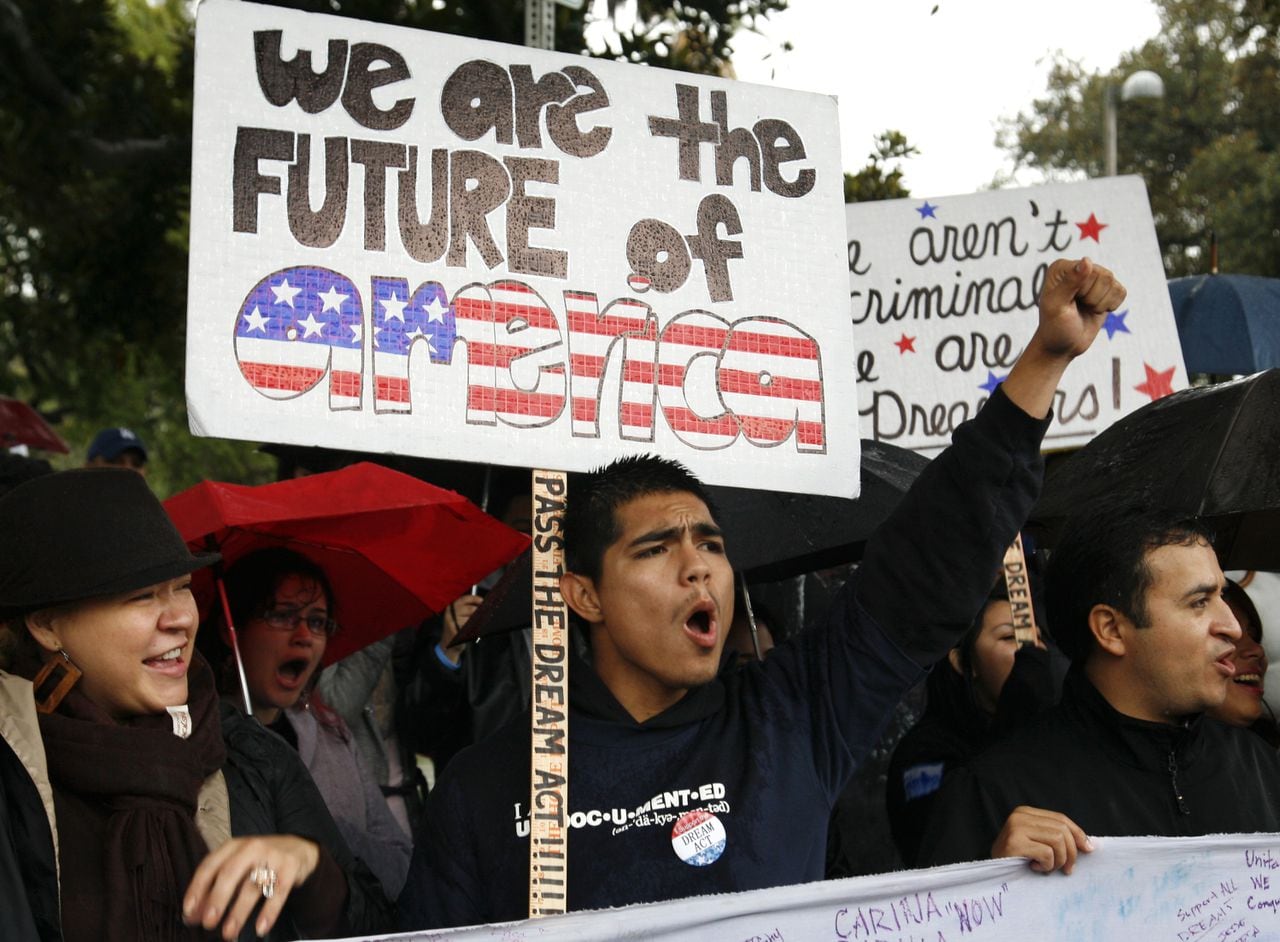University of California claims undocumented students canât legally hold on-campus jobs. Experts beg to differ
The University of California (UC) Board of Regents and UC President Michael Drake on Thursday determined that an initiative to allow undocumented students to work on-campus jobs was “not viable at this time” and carried “significant risk” for the institution.
In a closed meeting, the board voted to suspend creating the policy, barring its implementation at the university system’s ten schools. Undocumented college students are unable to apply for jobs or other educational opportunities like work study, paid internships, graduate student researcher or teaching assistant positions due to their status.
Undocumented UC students and California labor groups have long demanded equal access to jobs on campus through the Opportunity for All campaign. University administration had promised to create such a plan by November of last year.
“Our university let us down today. Our demand was simple and clear: We want equal access to employment opportunities on campus so that we aren’t relegated to a second class UC experience,” Jeffry Umaña Muñoz, a UCLA student and leader of the Undocumented Student-Led Network (USN), said in a statement. “I’m deeply disappointed that the UC Regents and President Drake shirked their duties to the students they are supposed to protect and support.”
In remarks made during the meeting, Drake said the board consulted several law firms and legal experts and explored other options.
“I know that many in our community will be disappointed that we are unable to take immediate action,” Drake said. “As an individual, I would like nothing more than to do so, right here, right now, because it is the right thing to do.”
Drake said the university system must take precautions to avoid exposing vulnerable students and to protect the institution, human resources and legal personnel who might be subject to prosecution for unlawful hiring practices. He said other opportunities would expand, such as the California College CORPS program, which exchanges volunteer service for tuition funds.
The decision comes after 25 students from USN organized a hunger strike beginning on Tuesday in anticipation of the UC Regents meeting.
“Undocumented students both at UCSF and across the UC campuses are once again risking their wellbeing and putting themselves on the line to demand President Drake & the Board of Regents #DoTheRightThing,” the group said earlier this week in a social media post.
Last May, the regents said they would find a way around hiring restrictions for students who don’t have protections under DACA or federal work authorization, but university officials missed their self-imposed Nov. 30 deadline, according to the UCLA Law Center.
According to legal experts, the University of California can provide equal access to on-campus jobs regardless of immigration status under existing laws.
“Our legal theory makes clear: The University of California has the legal right to authorize the hiring of undocumented students today,” said Ahilan Arulanantham, faculty co-director at the UCLA Center for Immigration Law and Policy, in a statement.
The center’s legal theory states there is no federal law that prohibits the university system from hiring undocumented students. In a 2022 letter, the group cited the 1989 Immigration Reform and Control Act, which does not explicitly mention any of the states, therefore they are not bound to those rules.
Protections for DACA have not been updated and most undocumented students entering college are not eligible for the program, according to the UCLA Law Center. In California, there are more than 44,000 ineligible students across university campuses, with about 27,000 more graduating from high school each year.
“The UC had the opportunity to stand on the right side of history, and chose not to. The fight is far from over — our undocumented students have struggled for too long and too hard to give up. Their ability to work would not only benefit our students and their families, but the university as a whole,” said Kent Wong, director of the UCLA Labor Center, in a statement.
